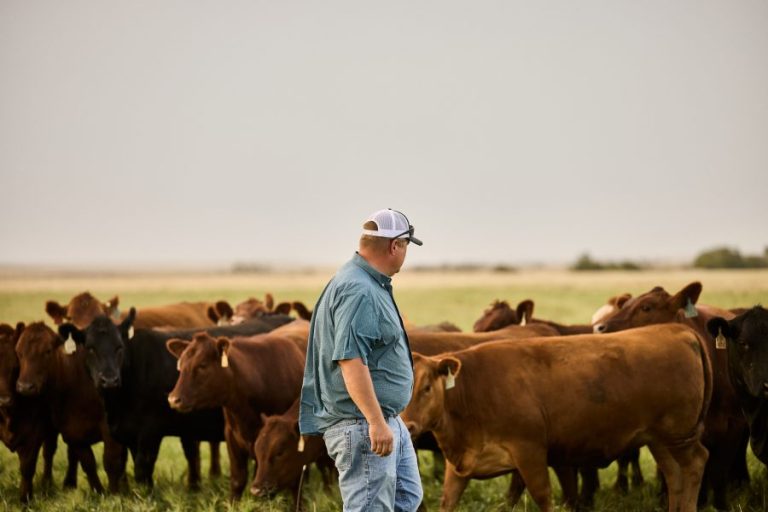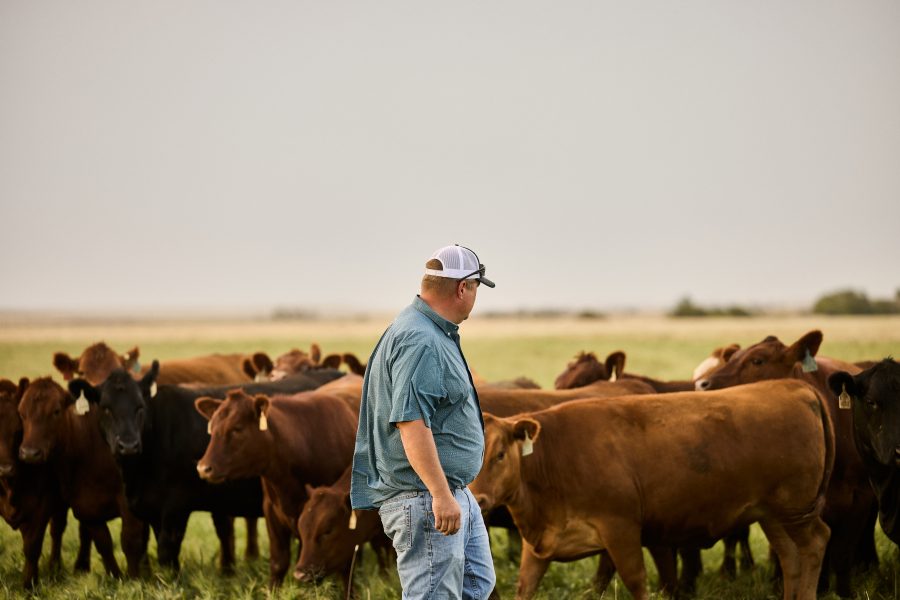CHAMBERLAIN, S.D. – Highland cattle breeders representing hundreds of farms and ranches from across the country will celebrate the 75th anniversary of the American Highland Cattle Association (AHCA) with a conference Arrowwood Cedar Shore Resort in Chamberlin-Oacoma, S.D., June 16-17.
They are one of the oldest breeds in the world but Highland cattle have become one of the new favorites with today’s beef farmers. Highland cattle originated in the Highlands and west coastal islands of Scotland as far back as the 6th Century, able to survive the extremely harsh conditions of the rugged and remote landscape.
Originally there were two distinct classes of cattle – the slightly smaller and usually black and the other larger generally red. Today they are one breed and come in traditional red and black, but also yellow, dun, white, brindle and silver
Founded at the Double X Ranch in Belvidere, South Dakota, in 1948, AHCA has the only globally recognized herd book. With 75 years of cattle registrations, the book has direct connections to every other leading Highland cattle organization in the world.
“There wouldn’t be any true Highlands in the United States if it wasn’t for AHCA,” said Tom McConnell, chairman for the gathering. “We owe our gratitude to the association’s founding members for having the foresight to keep our nation’s Highland cattle traceable back to the herd book in Scotland, which dates all the way back to 1885.”
Their attractive physique and high quality beef helped Highlands gain popularity in the United States. AHCA President Josh Krenz says having more than 2,000 members and nearly 65,000 registered full-blood Highlands is a testament to the organization’s strength and stability.
Krenz raises about 40 head on his 100-acre Windland Flats farm in Princeton, MN. He grew up on a dairy farm in Fall Creek, WI so he knows firsthand the differences between Highlands and dairy cows or even other beef cows..
“They are traditionally known for being docile and they have high quality meat that is low in fat and low in cholesterol,” Krenz said.
But that’s just the tip of the iceberg – or the horn – to explain the Highlands’ popularity.
They are excellent mothers – even first-calf heifers have a strong mothering instinct. They also are easy calvers. The Highland Performance Program – data collected by breeders – shows the average birth weight is between 56 to 70 pounds, with 97% unassisted. That’s a major plus for cattle giving birth while on pasture.
While Highlands use the horns for protection and are very adept at using them, they are for the most part a docile breed, with 79% scoring as “exceptionally calm” or “calm” when handled, according to the Highland Performance Program.
Also known for a long-haired coat, The hair is actually a double layer, a trait that allowed them to survive in the wet, cold and windy conditions of the Scottish Highlands. It allows them to survive even the harsh sub-zero winters in our northern states. In the summer they need access to shade and plenty of water, Krenz said.
They are one of the oldest breeds in the world but Highland cattle have become one of the new favorites with today’s beef farmers.
Krenz said it started about 10 years ago when Highland cattle became popular as art, with pictures showing up in home decorating stores or on social media feeds. That contributed to hobby farmers starting to acquire the animals.
Some raise Highlands as grazers, allowing them to slowly mature on their natural diet of grass. Others are cross-breeding Highlands with other breeds, hoping to finish them quicker.
Krenz said he recently sold 15 cows to the owners of a 3,000-acre row crop farm near Fargo. “These row-croppers haven’t had cows on their farm for three generations but wanted to graze their cover crops without investing in sheds or buildings needed for traditional cattle breeds as shelter,” he said. “The breed has just become more progressive with AI and embryos, attracting mainstream cattle producers as well.”
Four guest speakers will open the 75th Anniversary Gathering on Friday, June 16, starting with respected Scottish breeder and AHCA Member Angus Mackay, who will present the history of Highland cattle. Other speakers include:
- Amanda Radke, rancher, author and nationally recognized beef advocate from Mitchell, SD
- Steve Campbell, ranch consultant/cattle coach from Parma, ID
- Wally Congdon, rancher and AHCA member from Missoula, MT
Saturday, June 17 will consist of several expert-led, interactive roundtable discussions on topics like general cattle health, nutrition and minerals, and beef marketing. The event will also feature a photo and memorabilia display dedicated to three early AHCA members who are also members of the South Dakota Hall of Fame: Gov. Tom Berry, his son Baxter Berry and daughter in-law Lyndall Berry. George Bridge, Sr. will also be recognized in the display for increasing the breed’s exposure; his Highland cattle became well known for pulling covered wagons in events and parades in the 1960s and 70s. The event will conclude with a banquet on Saturday evening.
〉 To Register
〉 See American Highland Cattle Association on Facebook












